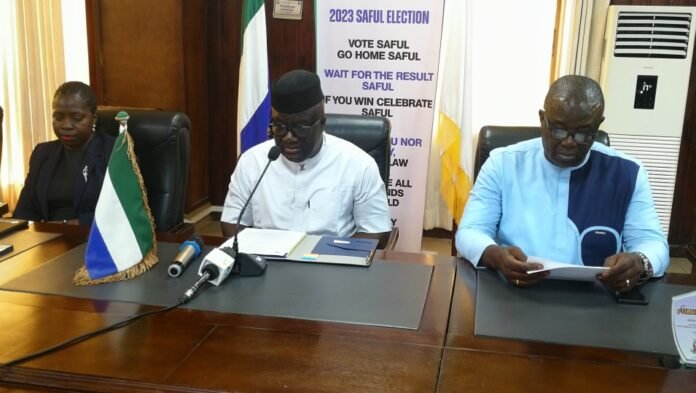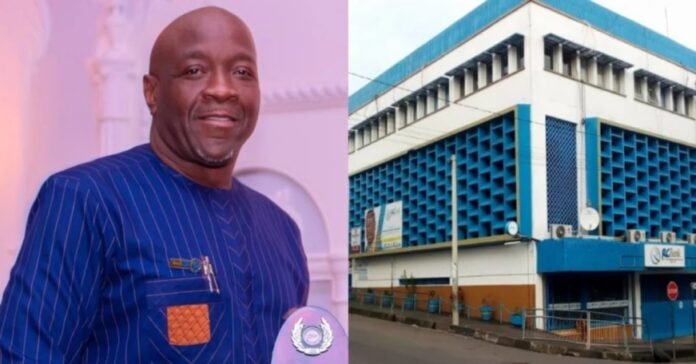By Amin Kef (Ranger)
A pioneering medical outreach program is currently transforming lives at Choithram Memorial Hospital, where a free cataract surgery camp is in full swing after commencing on March 15, 2025. This life-changing initiative, undertaken in collaboration with the Ministry of Health and esteemed international medical organizations, is set to restore vision to thousands of visually impaired individuals across Sierra Leone. With the camp running until July 15, 2025, patients will continue to receive world-class ophthalmic care at no cost, ensuring that the burden of preventable blindness is significantly reduced in the country.
Prior to its commencement, meticulous planning was undertaken to maximize accessibility, leading to the division of the country into four operational zones with screenings held at district hospitals. Supported by Choithram Netralaya in India, Noor Dubai under the Mohammed Bin Rashid Al Maktoum Global Initiatives and the Choithram International Foundation, the program guarantees the highest standard of surgical interventions. To uphold global best practices, the initiative is supervised by the National Eye Health Program Manager and incorporates a three-stage screening process that includes preliminary assessments by District Eye Health specialists, remote telemedicine evaluations by ophthalmologists at Choithram Memorial Hospital and final selections that see patients transported to Freetown for expert-led procedures.
Logistical barriers have been eliminated as Choithram Memorial Hospital fully covers transportation, accommodation and daily allowances for all surgical candidates during their three-day stay. A structured post-operative care system has been seamlessly integrated into district hospitals, with free medication provided to facilitate full recovery. In addition to offering direct patient care, the initiative is elevating Sierra Leone’s medical capabilities by training local healthcare professionals in advanced ophthalmic techniques and acquiring cutting-edge surgical equipment, including high-precision operating microscopes and Phacoemulsification machines.
As this remarkable eye care program continues to change lives, anticipation is building for another equally impactful medical initiative set to commence on March 21, 2025. In partnership with the Bintumani Association, Choithram Memorial Hospital will launch a free pediatric surgery camp that will run until April 4, 2025, providing critical surgical interventions for children under fifteen suffering from treatable conditions. A distinguished team of German surgeons will conduct specialized procedures for conditions such as neck fistulas, cysts, soft tissue tumors, hernias, undescended testes and congenital urogenital and gastrointestinal abnormalities, offering hope to families unable to afford vital medical care.
With registration having commenced on February 24, 2025, parents and guardians have responded in overwhelming numbers, eager to secure a place for their children. Screening processes are currently in progress at designated centers, with eligible cases being referred to Choithram Memorial Hospital for surgery. However, conditions such as hydrocephalus, myelomeningoceles, clubfoot and cleft lip and palate will not be covered in this year’s program. The success of this initiative has been made possible through the tireless efforts of Sierra Leone’s Ambassador to Germany, H.E. Dr. M. L. Baryoh, whose instrumental role in facilitating the partnership with the German medical team has been widely acknowledged.
Harish Agnani, Chief Administrator of the Choithram Group, has reaffirmed the hospital’s unwavering dedication to ensuring that quality healthcare remains accessible to all. Emphasizing the significance of these initiatives, he highlighted how they serve as a beacon of hope for underserved communities, bridging the gap in medical accessibility. With limited spaces available, families are encouraged to act swiftly to secure participation in these transformative programs.
As these humanitarian healthcare initiatives unfold, they stand as a testament to the power of strategic collaboration and compassionate outreach. They mark a defining moment in Sierra Leone’s healthcare landscape, paving the way for a future where quality medical services are within reach for all who need them most.










